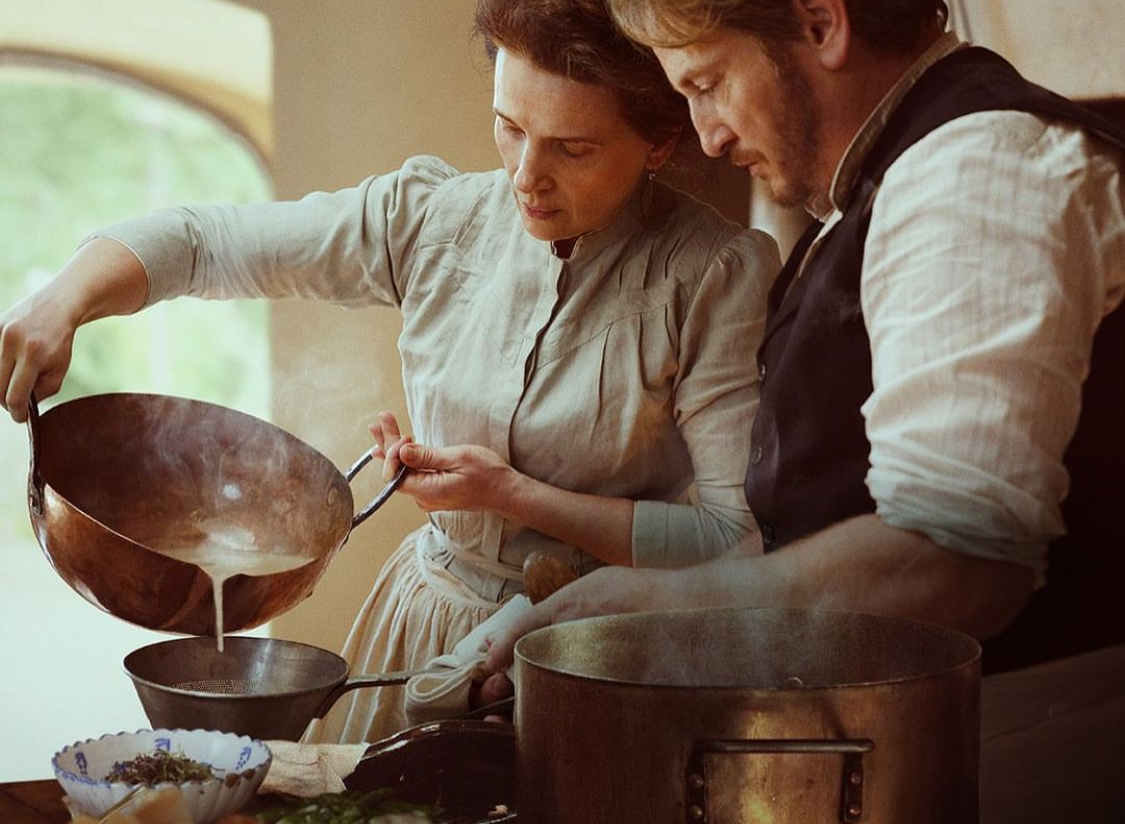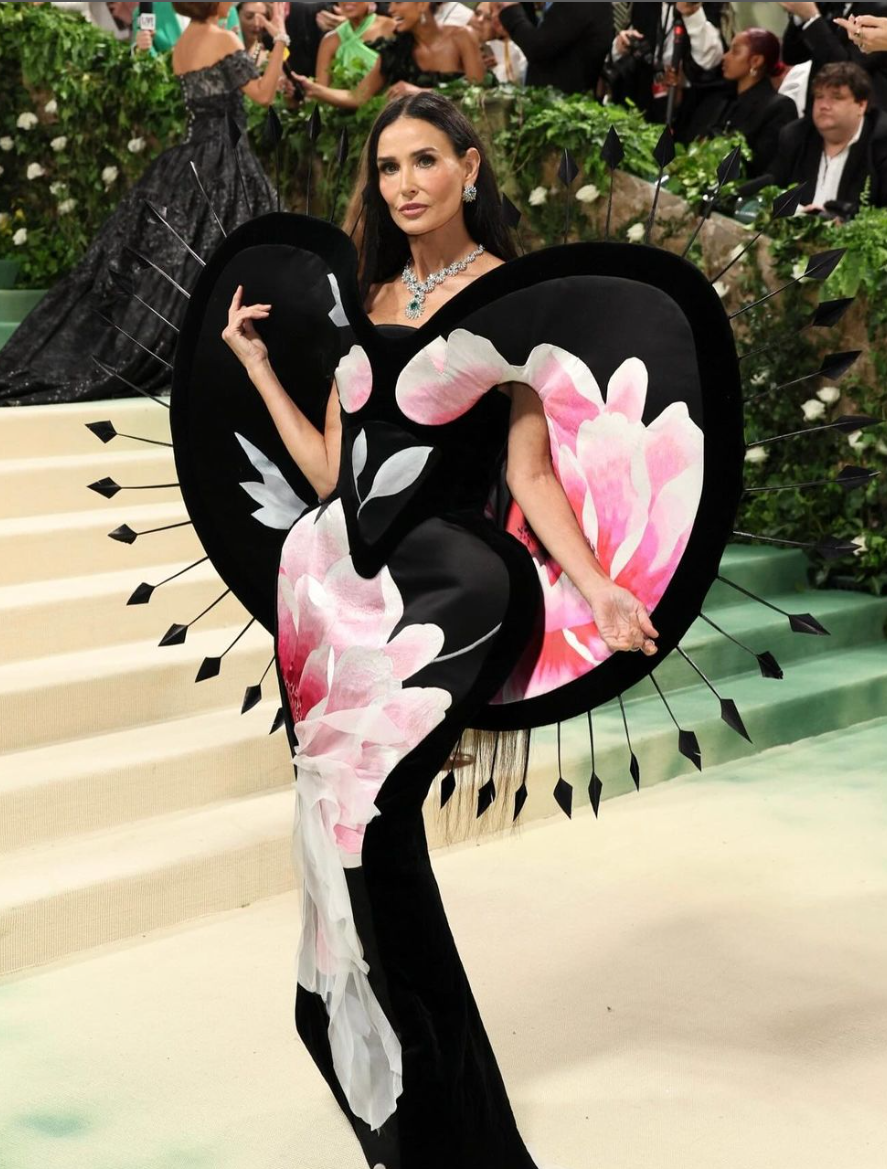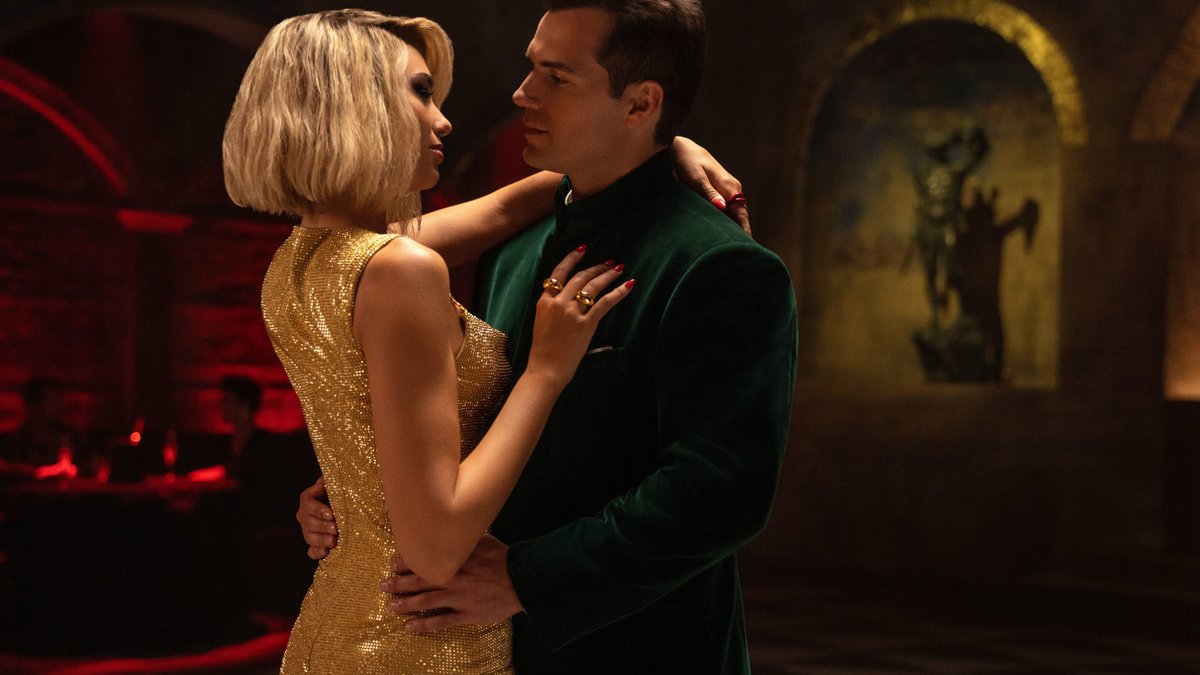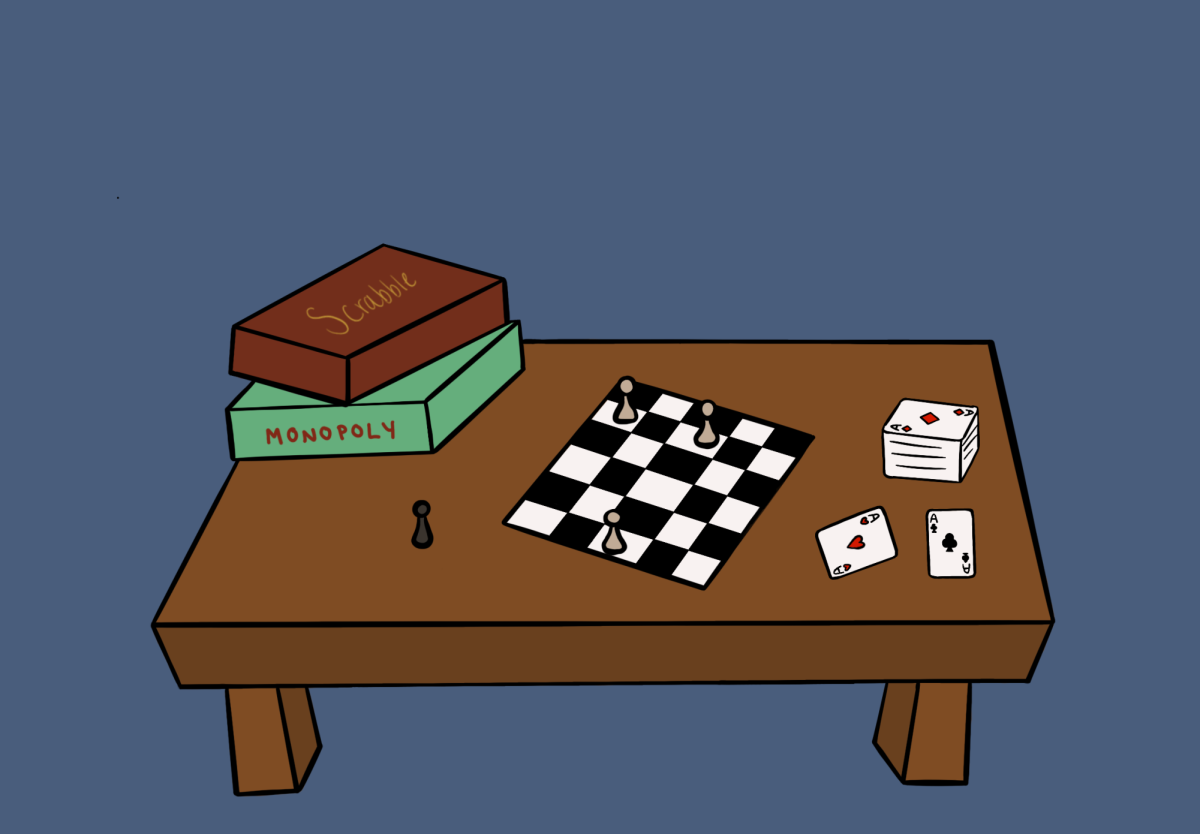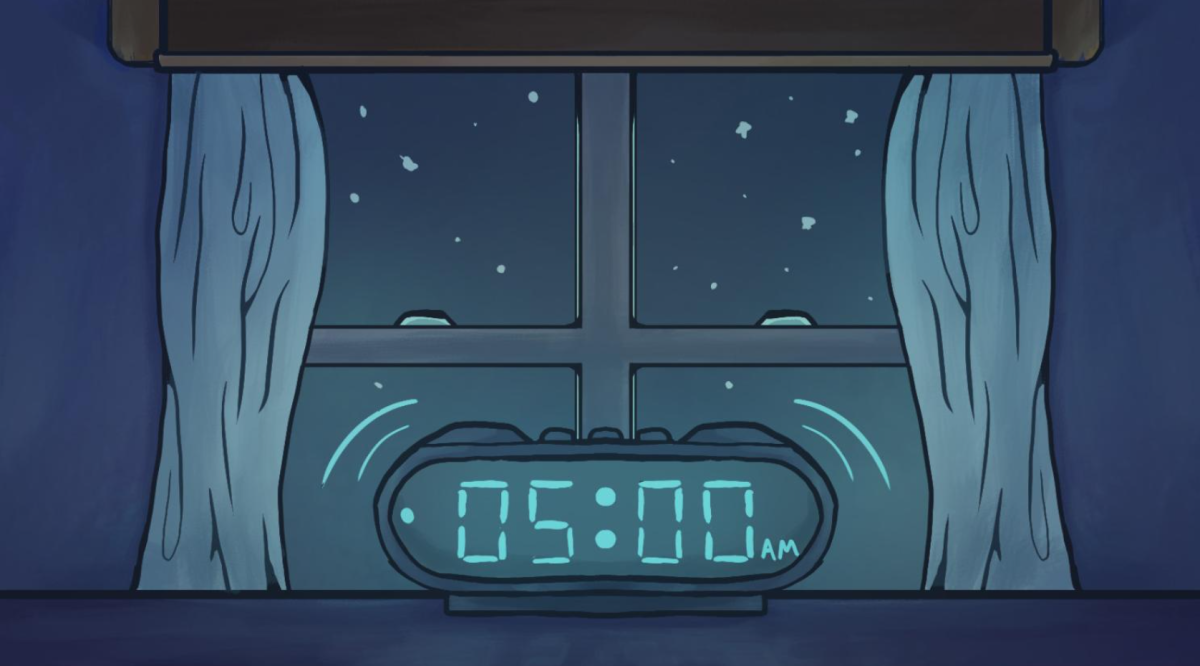It’s hard to know what puts the most masterful chefs a cut above the rest. Is it their natural ability in the kitchen? A finely tuned skill? Their exact execution or precise attention to detail? In 2023’s illustrious French cooking film “The Taste of Things,” director Trần Anh Hùng provides an unlikely answer to that question, as he paints a powerful portrait of a kitchen environment. Here, quantifiable craft collides with untold scores of human emotions, and audiences see how the power of love acts as a conduit for exceptional cooking.
Taking place in the French countryside during the late 19th century, the film follows highly skilled cook Eugénie (Juliette Binoche), who works for the esteemed chef Dodin Bouffant (Benoît Magimel). For 20 years, with the help of their assistant Violette, they have been whipping up handcrafted meals for Dodin’s high society friends. Watching them work in full force throughout the extended opening, it seems as if they have mastered the art of cooking and are operating at the apex of their culinary prowess.
Eugénie and Dodin’s cooking efforts are placed center stage in elaborate and lengthy cooking scenes that serve as pivotal narrative points to the story. Just in the opening scene alone, the film guides the audience through the creation of a full-course meal as the two chefs bring plate after plate of mouth-wateringly beautiful dishes to life before our very eyes. Despite the frequency of these scenes, they never grow tiresome, as the film finds ways to explore the personal care and artistry behind the food as well as the larger motivations for their creation.
Eugénie and Dodin’s close-knit relationship may resemble that of a married couple, but the film soon makes it clear that things are not that simple. Dodin is just as passionate about Eugénie as he is about food, though she has never accepted his proposals, choosing instead to keep some separation between them outside of the kitchen. Nevertheless, when Eugénie must recuperate after a health scare, Dodin steps up to the plate, cooking a full-course meal just for her. Realizing he might not have another chance to express his love, Dodin infuses his burning passions into every morsel of the meal. As these threads develop, Eugénie and Dodin feign the idea of taking on their assistant’s niece, a young girl named Pauline, as an apprentice. While her role pushes the two leads in interesting directions, the plot lacks a significant payoff and feels like it leaves a couple of beats on the table.
However, what makes this unconventional, powerful story of connection remarkable is the context of its casting: Juliette Binoche and Benoît Magimel were briefly married before they divorced in 2003. The intersection between the pair’s relationship in the film and their relationship in real life adds a fascinating layer to everything that plays out on screen, and it’s heartwarming to see the two connect in such a lifelike manner.
Despite its specific historical setting, “The Taste of Things” never gets into the weeds about any of the details of the period. The film could have gone deeper into the French culinary world and the gourmet lifestyle of the era without needing to make major changes to the story. It’s instead primarily set in the kitchen and household, confining the cooks to that environment. While it may be accurate, it is still a slight shame because the film’s characters could have benefitted from working outside their usual setting and being forced into different interactions.
On the technical side, “The Taste of Things” is a marvel. The cinematography is precise and balletic, gliding back and forth between flawlessly perfected meals. Later, the camera work takes on an added level of restraint, carefully pulling back on quiet moments spent by characters savoring tasty pieces of gourmet cooking. Every ounce of food on the screen carries a pristine look, but the superb sound design does a subtly critical job of ensuring that the cooking scenes work effectively. In the opening scene alone, as the lead team of chefs is hard at work, audiences can hear the precise clinks and clanks of pots and pans while flames crackle in the adjacent fireplace and the chirps of nearby birds slip into the kitchen through an open window. The sound might not be what jumps out at you at first, but with the impressive layering of audio and attention to spatial awareness, it’s a detail more than worth picking up on.
“The Taste of Things” may have missed the ‘international feature film’ category at The Oscars, but that doesn’t mean it wasn’t one of the most compelling concoctions of last year. Having just made its U.S. debut, now is the perfect time to take a whiff of Dodin’s pot-au-feu and give “The Taste of Things” a try.









